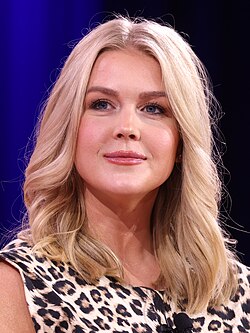Karoline Leavitt: Young Republican Leader in New Hampshire

Introduction
Karoline Leavitt is rapidly becoming a significant figure in New Hampshire’s political landscape. As a young Republican candidate, she represents a new generation of political leaders who are actively engaging with voters and advocating for conservative values. Her unique approach and messages resonate with many constituents, especially younger voters, highlighting the evolving dynamics of political representation in the state.
Background and Career
Born and raised in New Hampshire, Leavitt has a background in communications and public service. She previously served as a press secretary for notable Republican figures, including former White House Press Secretary Sarah Huckabee Sanders. Leavitt’s early involvement in politics has shaped her commitment to preserving American values and promoting policies that support economic growth and individual freedoms.
Current Campaign
In the 2022 midterm elections, Leavitt ran for New Hampshire’s 1st Congressional District, aiming to represent the interests of her constituents in Washington. Her campaign focused on key issues such as fiscal responsibility, healthcare reform, and securing the southern border. Endorsed by significant figures in the Republican Party, Leavitt’s candidacy has brought attention to the importance of youth participation in politics.
Leavitt’s platform is grounded in the belief that young voters need to have their voices heard, especially on issues that directly affect them, such as education and employment opportunities. Her commitment to engaging with constituents has garnered her a loyal following, as she frequently holds town halls and forums to discuss concerns and listen to feedback.
Significance and Future Prospects
Leavitt’s rise in New Hampshire politics underlines the potential shift within the Republican Party as it seeks to attract younger voters. Her ability to relate to the younger demographic can help shape the party’s future direction. As she continues her political journey, many analysts will be watching closely to see how her influence grows and whether she can inspire more young people to participate in the political process.
Conclusion
Karoline Leavitt is not just a hopeful candidate; she embodies a growing trend of youth engagement in politics. As the political landscape shifts, her continued presence may signify a broader movement towards inclusivity and representation among younger generations. Her journey will likely inspire future candidates, and her effective communication skills could make her a notable figure in Republican politics for years to come.









